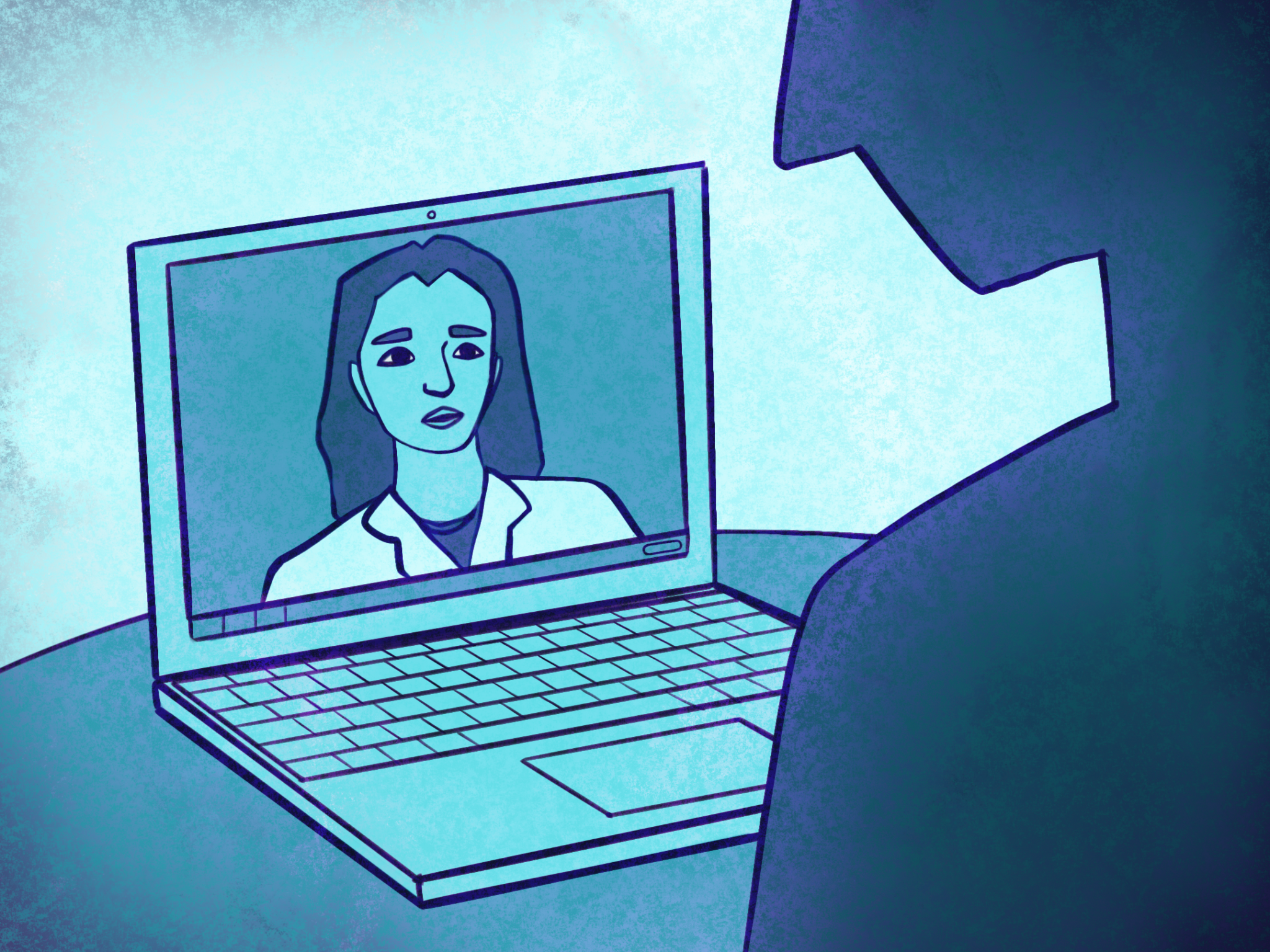Yale researchers explore potential benefits and risks of telehealth
Yale cardiologists analyzed the practical and ethical considerations of telehealth.

Cate Roser, Staff Illustrator
In 2021, about 37 percent of adults in the United States had used telehealth in the prior 12 months, according to the National Center of Health Statistics.
In a paper published on Nov. 30, an assistant Yale professor and two associate Yale professors analyzed the potential opportunities and pitfalls of telehealth, and also provided suggestions for promoting high-quality, equitable and ethical use of it. The study analyzed three ethical considerations: distributive justice, unintended consequences, and autonomy versus beneficence. Among the benefits highlighted by the authors was the increased availability of options for patients.
However, it was also emphasized that there is a risk that telehealth could undermine the quality of care for patients with certain conditions such as valvular disease, among others.
“Cognitive bias may lead many of us to view technological advances as inherently good or positive,” Sarah C. Hull, one of the study’s authors said. “While the intent of telehealth to provide greater convenience and access to patients is certainly laudable, it is important to interrogate the potential impacts of inferior quality or unintended consequences, particularly with respect to vulnerable populations.”
Hull, a Yale assistant professor of cardiology, wrote the study alongside Joyce Oen-Hsiao, associate professor of clinical medicine and director of Cardiac Rehabilitation Services at the Yale-New Haven Hospital Heart & Vascular Center, and Erica S. Spatz, Yale associate professor of cardiology.
It has been documented by the National Center for Health Statistics, part of the Centers for Disease Control and Prevention, that the use of telehealth is correlated with the degree of urbanization. The authors noted in the paper that telehealth could increase disparities in populations with limited digital access.
To improve the use of telehealth, the authors provided some recommendations, such as incorporating remote digital diagnostic devices and training patients how to use them. Additionally, it was suggested that the use of this method to deliver health-related services could be used as a complement to, rather than a replacement for, face-to-face visits.
Harlan Krumholz — Harold H. Hines, Jr. Professor of Medicine, Professor in the Institute for Social and Policy Studies of Investigative Medicine and of Public Health, and director of the Yale New Haven Hospital Center for Outcomes Research and Evaluation — agreed.
“The potential of telehealth is immense, as we configure a system that more fully delivers care when and where the patient prefers, and obviates the inconveniences of the traditional approach,” Krumholz said. “As we embark on this new era, we need to be attentive to how to do telehealth well, cognizant that we do not have the many advantages of seeing a patient in person and employing strategies that minimize the chances that something important has been missed.”
According to Makoto Mori, an Integrated Cardiothoracic Surgery Resident at Yale, the potential of telehealth has been realized in clinical encounters, such as outpatient visits and postoperative follow-up, especially with patients who live far from the hospital. Regarding physiologic monitoring through the uses of telehealth, he explained that “remote physiologic monitoring (vitals, activity level, etc) has a lot of potential in improving post-acute phase of care but the benefit has not been largely realized outside of the research context.”
Mori also noted a potential risk of telehealth.
“It does take away the in-person face-to-face encounters that are often central to physician-patient relationships,” Mori said. “So it needs to be used judiciously. Important conversations like pre-surgical counseling and visits for patients who are struggling in their clinical course are something that telehealth should not replace.”
According to Hull, the team aims for this study to help foster the evaluation of the benefits and drawbacks of telehealth. She hopes “that our ethical analysis will encourage further research to elucidate both the advantages and limitations of telehealth such that it can be deployed in a thoughtful and evidence-based framework.”
The study was featured in the Yale Journal of Biology and Medicine.







